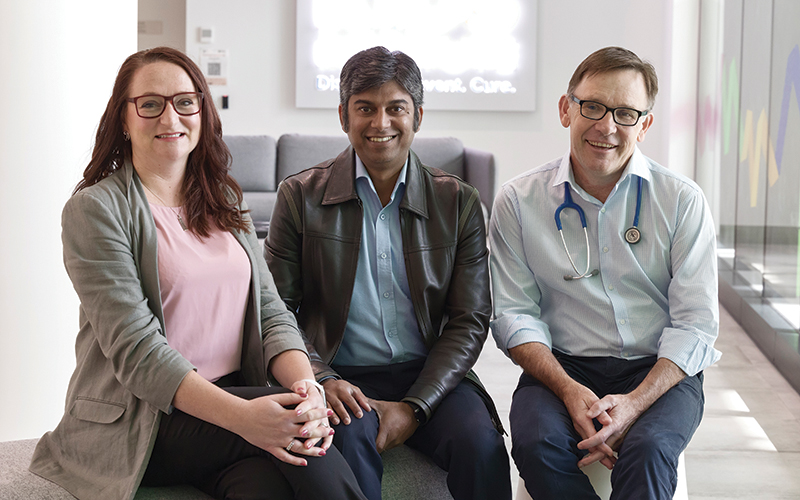2020 Saw RSV Rates Rollercoaster – Scientists are still working out why
Winter typically brings a surge in respiratory viral infections, but the 2020 Australian winter was very different. Public health measures in place to control the spread of COVID-19 saw a major shift in the typical seasonal pattern of other respiratory viruses.
Following an abnormal winter that saw a significant drop in rates of RSV (98 per cent fewer winter cases in Western Australian children than a typical season), the 2020 summer saw unexpectedly large numbers of children presenting to paediatric hospitals around Australia. In all, hospitals experienced a more than 600 per cent increase in admissions for respiratory infections – mainly from RSV.
“The speed and magnitude of this increase was greater than the usual winter peak of RSV. Weekly detections in December 2020 were 2.5 times higher than the normal winter weekly peak,” Dr Hannah Moore said.
Studies seeking to understand exactly why we’ve seen such a significant rise in RSV cases are ongoing and involve Telethon Kids researchers, national and international collaborators.
“Further research will help us learn potential ways to reduce the spread of infection when it is circulating in the community and minimise the number of kids experiencing severe, life-threatening illnesses,” Dr Moore said.
“Anomalies in infectious disease behaviour like the recent summer surge show how unpredictable transmission dynamics can be and how important robust data are.”
Baby George joins the RSV fight
With a toddler at day care, a newborn at home and an RSV season around the corner, enrolling in a Telethon Kids RSV study was a no brainer for Perth Mum Jessica Fitzpatrick.
Having already taken part in Telethon Kids research with her older child, Austin, Jessica was keen to contribute further.
“When I was pregnant with Austin, I was part of a Telethon Kids study that tested whether vaccinated women pass on their antibodies. That meant I was protected in pregnancy and Austin was protected over his first winter,” Jessica said.
Her second baby, George, is now helping researchers find answers to RSV.
“Our friends’ son was hospitalised twice with RSV when he was a baby so we know the effect it can have – we’ll do what we can to protect George from that,” Jessica said.
As someone who works in a medical field, I understand the benefits of early vaccination. It’s a win-win situation – we’re protecting George and playing a part in helping other newborn babies avoid serious illnesses in the future
The study George is enrolled in will determine whether a monoclonal antibody treatment specific for RSV, given as a single injection, will protect babies for five months over the winter season. Already shown to protect preterm babies, it is now being evaluated in babies born at term.

